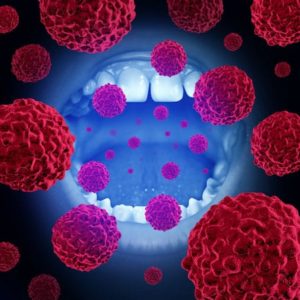Oral Cancer: Signs, Symptoms, & Prevention
Oral cancer can occur in various parts of the mouth, such as the lips, gums, and tongue. When not diagnosed or treated early, oral cancer can be life-threatening.
When to Have Your Mouth Checked
Oral cancer signs and symptoms may include the following:
- Bleeding in the mouth
- Lumps, swelling, or rough spots in the mouth
- Dentures that fit poorly
- Pain in the jaw
- Difficulty when chewing or swallowing
- Sores that last for over 2 weeks or those that won’t heal
- Significant weight loss
- Sore throat
If you notice any of these signs and symptoms, it’s best to schedule an appointment with your doctor or dentist right away. This way, they can check for other possible causes or determine whether mouth cancer is the issue.
Diagnosing Oral Cancer

When you come in for an oral cancer screening, your dentist will look for any lumps in your mouth and surrounding areas, such as your neck and face. They will also check for any sore areas or discolored tissues in your mouth
Should your dentist find anything suspicious, they may perform further exams. One of which is called biopsy, a procedure used to diagnose oral cancer. During biopsies, lesions or cavities are examined closely. Tissue or cell samples are collected and inspected.
Treating Oral Cancer
Treatment options may vary depending on the extent of the cancer or patient goals.
There are treatments that focus on treating cancer while others are used to contain cancer cells, provide comfort, or relieve symptoms. Oral cancers that have already progressed to Stages 3 and 4 may require more intensive treatments.
You and your doctor will be discussing which treatments to push through with.
How to Lower Risk of Developing Oral Cancer
While it is not clear what triggers cell mutations that cause mouth cancer, there are ways on how you can prevent them.
- Avoid smoking. Tobacco exposes mouth cells to cancer-causing chemicals. Avoid using all forms of tobacco to lower your risk for oral cancer.
- Quit smoking. Stop smoking or using any form of tobacco. Don’t be afraid to ask help from your loved ones.
- Limit alcohol intake. Drinking alcohol occasionally should be fine. However, excessive alcohol can make cells in your mouth more likely to develop cancer. Watch your alcohol intake especially if you’re a man. Studies suggest that men are twice more likely to develop oral cancer.
- Avoid excessive exposure to the sun. Excessive exposure to sun’s rays can make you more vulnerable to mouth cancer. Reduce the time you spend under the sun, especially at noon when rays are at their most intense. If you need to be out, use protection such as wide-brimmed hats or apply a lip balm that contains SPF.
- Maintain a balanced diet. Go for a diet that is rich in vegetables and fruits. These types of food are packed with vitamins that can help protect you against oral cancer.
- Protect yourself from HPV infection. HPV infection is another risk factor for mouth cancer. If you are sexually active, you can reduce the risk of having mouth cancer by limiting partners and using condoms.
- Ensure good oral hygiene. Keep all areas of your mouth in good shape. Brush and floss regularly, always drink water and stay on top of your dental visits. If you are using dentures or any removable oral appliance, be sure to keep them clean at all times. If you feel that your dentures no longer fit properly, advise your dentist immediately so they can check on it.
Learn more about oral cancer prevention. See your Grande Prairie Dentist today.

10309 98 Street
Grande Prairie, Alberta T8V 2E7
New Patient: (587) 803-4406
Existing Patient: (780) 532-2212
HOURS
Monday - Thursday8:00am - 4:00pmFriday8:00am - 2:00pmCopyright 2025 Generations Dental and Dental Growth Strategies | All Rights Reserved | Powered by Dental Growth Strategies